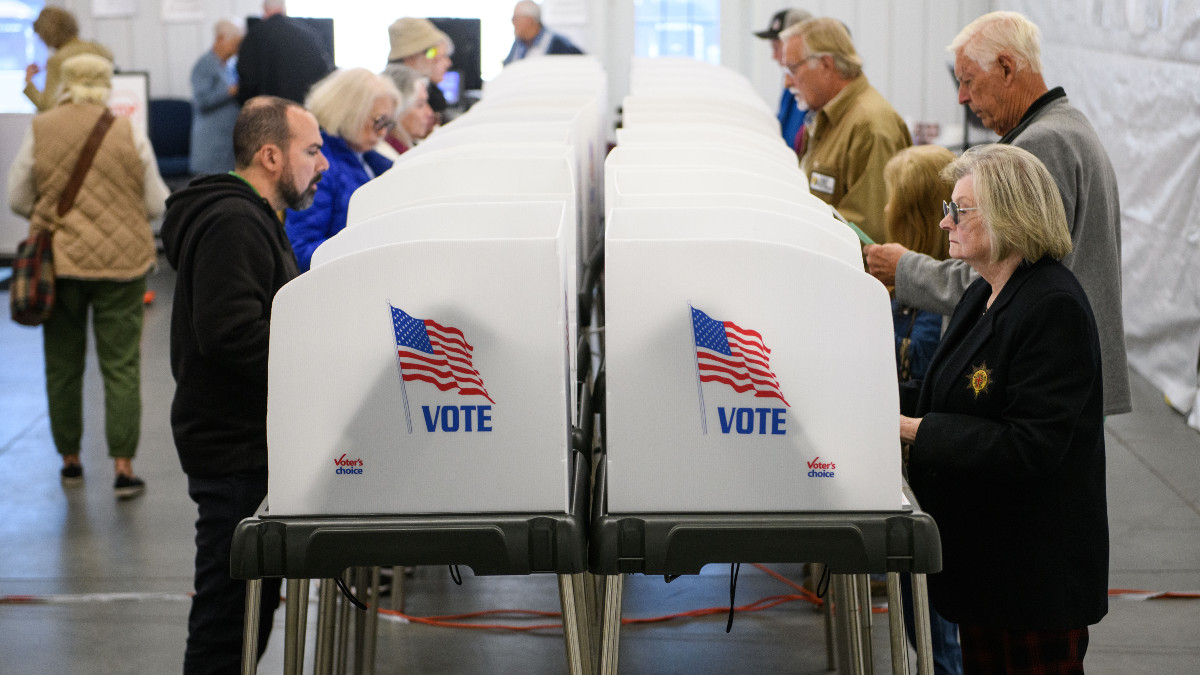‘Trump voters are learning it after’: The internet slams MAGAs for voting in favor of questionable policies

A viral tweet highlighting the stark contrast between Trump and Harris voters has ignited fresh debate about political learning curves and voter self-interest in the wake of the 2024 election.
“The difference between Trump and Harris voters is that Harris voters understood: tariffs are a tax we pay, the ACA is Obamacare, mass deportations are a bad idea, cabinet nominations matter, Project 2025 is terrible—before the election. Trump voters are learning it after,” posted @JaredRyanSears, garnering widespread attention.
This observation taps into a deeper pattern identified by behavioral economists and neuroscientists who study voting behavior. In talking about Trump’s first election to high office, Oxford University neuroscientist Molly Crockett’s still-relevant research reveals how voters often choose to “punish” the establishment even at personal cost, engaging the same reward centers in the brain activated by addictive substances.
“Some of the expressed sentiments of voters in both the Brexit referendum and the US election did suggest there was a motivation to punish there,” Crockett noted in her studies of electoral behavior to Quartz in 2017. The economic implications prove particularly striking. According to recent research, Trump’s proposed 60% tariff on Chinese goods and 20% universal import tax would cost typical American households $2,600 annually. Mass deportation policies could trigger worker shortages and price increases across industries.
Yet exit polls show many Trump voters acted against these economic realities. The Peterson Institute estimates these policies could drive inflation to between 6-9.3% by 2026, far above current projections.
This dynamic mirrors what philosopher René Girard called “mimetic rivalry”—where groups become so focused on defeating perceived enemies that they lose sight of their own interests in battling these false rivals. Trump voters’ intense focus on punishing “elites” and other similarly positioned people in different ethnic/racial categories has led many to embrace policies that may harm their economic well-being. In their scapegoating of others, they often commit to net-negative actions without understanding the finite/infinite games they exist in or what their nasty consequences will create for themselves.
The phenomenon extends beyond purely economic issues. Project 2025, a sweeping conservative policy blueprint that Trump has publicly distanced himself from—and people believed him—includes proposals that would negatively impact healthcare access, federal services, and consumer protections. Yet many voters supported Trump without fully examining these implications.
“Data suggests that people are telling themselves and others that they’re punishing for moral reasons when, in fact, the motivations are more complicated than that,” Crockett explained. “The motive to harm someone who you perceived has harmed you is a very strong force.”
Social media appears to amplify this dynamic. “When you express outrage on Facebook or Twitter, not only do you get the immediate satisfaction of posting that, but you also get repeated and amplified reinforcement of that behavior because people like what you say, and they share it,” Crockett noted.
This creates what she calls a “highly self-reinforcing cycle” that can override rational economic decision-making. To be fair, it could definitely be argued that Harris represented something slightly less nefarious but highly problematic nonetheless, for various reasons. But it is within those degrees that the choice was clear.
As the implications of various Trump policies become clearer, online critics argue this pattern of “learning too late” has become a defining feature of contemporary conservative voting behavior. The viral tweet captures mounting frustration among political observers who see voters repeatedly supporting measures against their interests, only to express surprise at the consequences after their strong man does exactly what he says he would do.
Whether this pattern will influence future voting behavior remains unclear. What is evident, according to researchers, is that the psychology of punishment and rivalry continues to shape American political choices—often at the expense of voters’ material well-being.
Have a tip we should know? tips@themarysue.com
